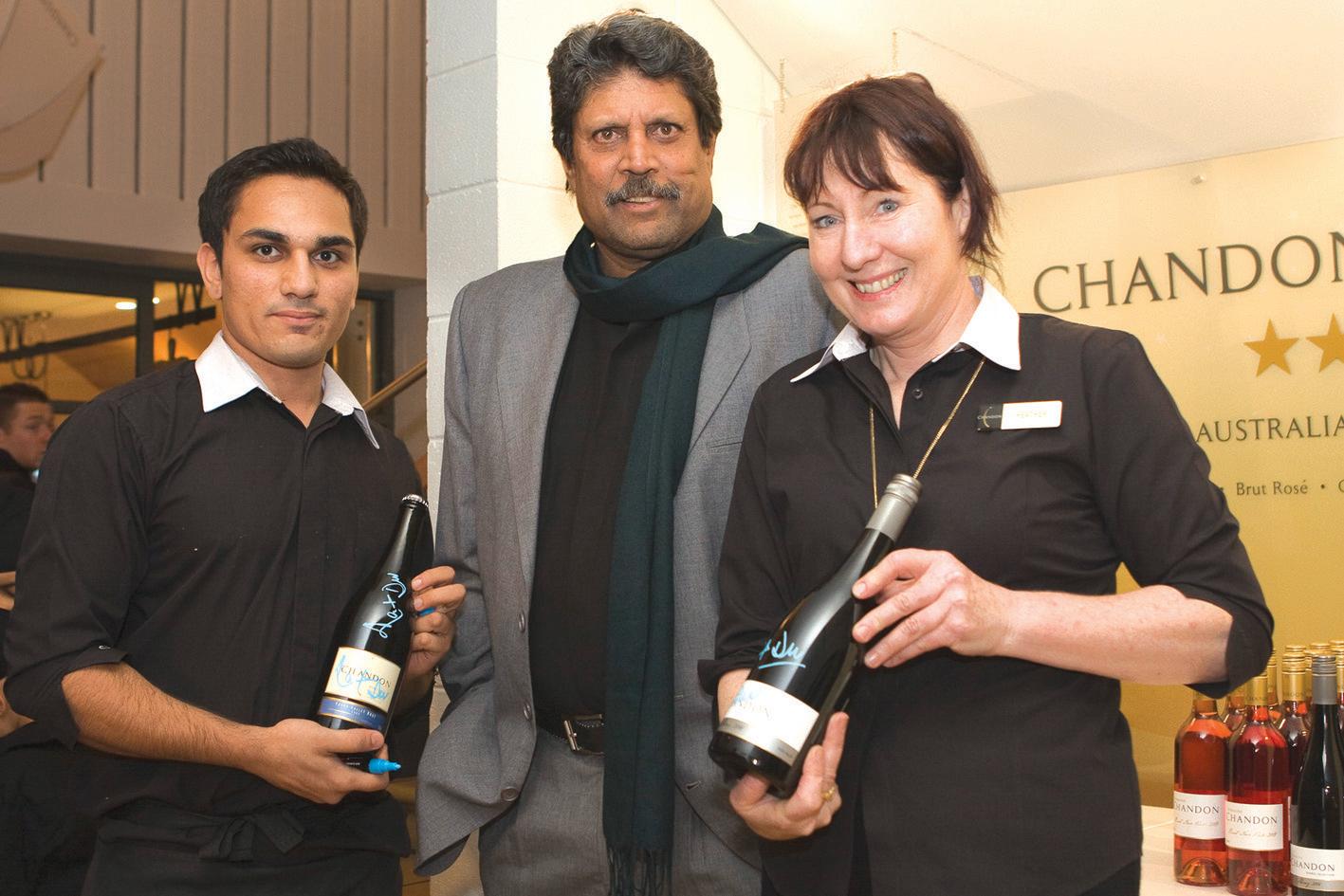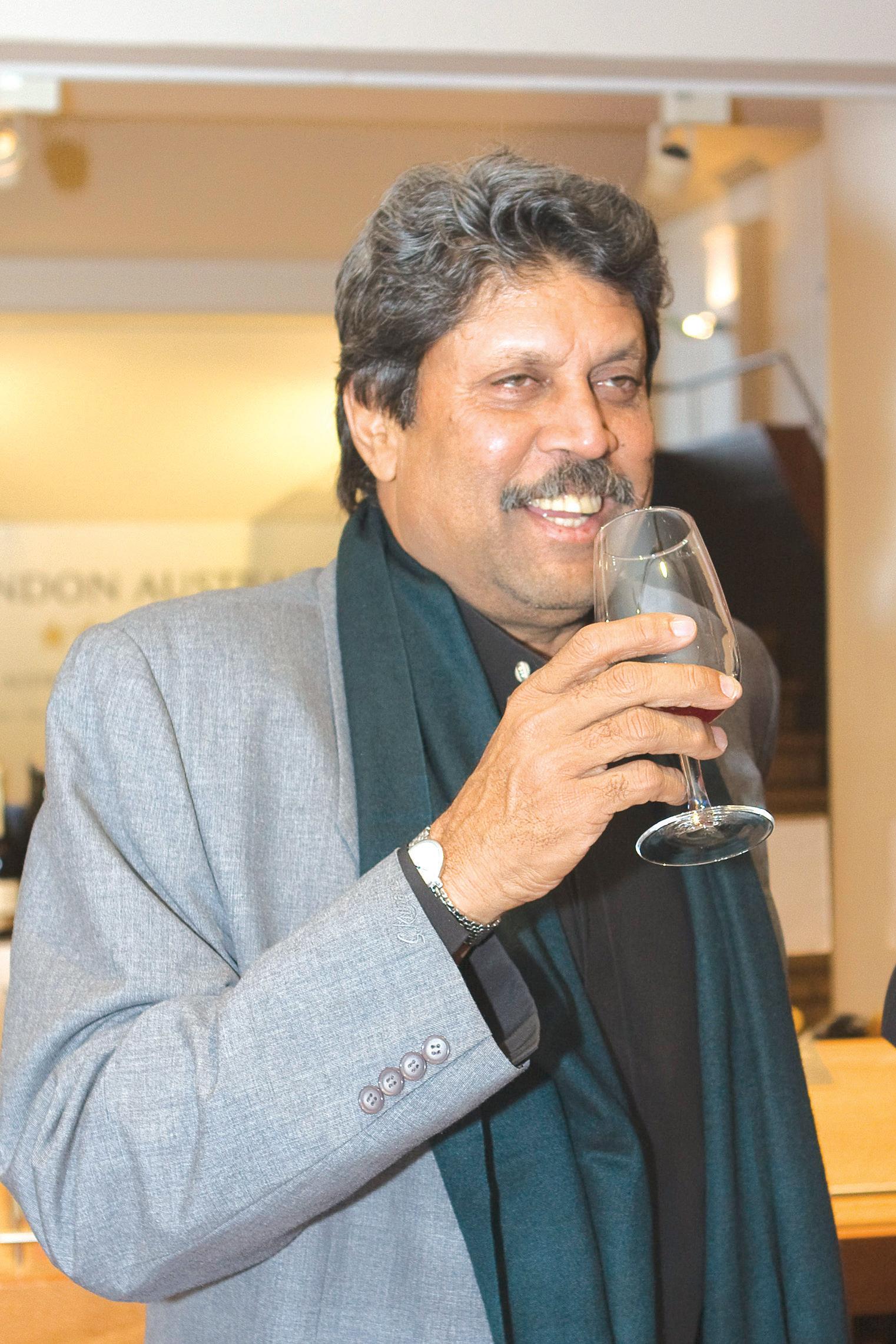
5 minute read
Soft heart, strong opinions
from 2010-08 Melbourne
by Indian Link
I have to confess, to the surprise and annoyance of many, that I am not a great fan of cricket, and even less of cricketers. But interviewing Kapil Dev while sharing a sightseeing trip to Domaine Chandon winery in Melbourne recently, has converted me. I enjoyed the luxury of an entire evening to chat with this cheerful, affable and extremely talented veteran cricketer, whose prowess on the field rightly earned him the sobriquet of ‘Haryana Hurricane’.

Kapil Dev was in Melbourne to collect Pooran Singh’s ashes from the cemetery in Warrnambool, where they have been preserved since the past 63 years (Indian Link, July Issue). He was profoundly moved by the story of this hawker from Victoria, and volunteered to return the ashes to Pooran Singh’s home town in Punjab, their final resting place, where they would be immersed in the river Ganga. It was a great gesture from a humble and yet prolific person.
As Kapil Dev relaxed in the car with his shoes off during the drive and made us listen to his favourite Punjabi and Hindi song he endeared himself with his warmth and easy going chit chat. “I am not a strong headed person, but I have strong opinions,” claimed the cricket legend, adding weight to the statement by frankly commenting on all the topics discussed. After the interview and the time spent with KD, he has one more fan to add to his already impressive listyours truly!
Preeti Jabbal: Tell us a little bit more about your involvement with Pooran Singh’s Ashes story?
Kapil Dev: I am a very emotional person. I came to collect Pooran Singhji’s ashes simply because I believe he deserved a rich tribute. After hearing the stories that have now come out after so many years, I believe he must have been a good and lovable person. Lots of people left home in that era between the 1800s-1900s to make a living abroad, and left an impact on people around them like Pooran Singhji did. It must have been hard for them. I am interested in knowing details of how Pooran Singhji came negativity around this issue; however it is the responsibility of the media and individuals to not let negativity override all the good work that has been done. Events occur everywhere, even in India, but you can’t run down a country or individual and spoil relationships based on few mishaps. Every Indian coming to Australia is an ambassador for the country, it is also their responsibility to make sure they assimilate to lead a healthy and happy life. Good and negative elements coexist. It is up to us to focus on the positives and live together in harmony. to be in Australia? What was his journey like? How did he live? How he worked and what kind of impact he made on people around him… It is a very emotional and beautiful story. I hope one day, they make a movie out of his story.
PJ: People are still coming to Australia to make a living or to study here. What do you think of all the recent controversies in relation to Indians living in Australia?
KD: I am disheartened by the stories I hear and read about back home. And personally, I have only one question to ask: how can we
PJ: Do you think Pooran Singh’s story will promote that harmony? Has the Indian media offered his story the same coverage as the negative ones?
KD: Back home in India there is an influx of news channels and they are all out to get a story. Sometimes they do stories for their personal benefit, rather than providing good coverage. I would like to see more positive stories coming out of Australia and India. Pooran Singhji’s story is unique. One good story like this can make such a difference. Fortunately, the media interest in this story has been enormous. I have been interviewed several times over in relation to this, and it was heartening to see hundreds of people willing to travel to Warrnambool for the final journey of Pooran Singhji’s ashes. I am a person who likes to see the positive side of everything, and I am glad I made the decision to get involved and come out on my own to Melbourne to give Pooran Singhji the respect he deserved.
PJ: Are you still involved with cricket?
KD: Not much. Cricketers like me get involved with working for cricket through cricketing events, TV etc., but all the major decisions are made by the cricket control boards. They are the ones who have the major responsibility towards the sport. The Indian cricket boards are a power in the world of cricket today. I hope they put their heads together and try to do good things for world cricket.
PJ: What do you think of the IPL?
KD: IPL has a good and bad side. Everyone loves it and enjoys IPL. There is nothing wrong with that, however it is the way it is conducted that can be questioned. As a cricketer I may not like the dancing on field and late night parties etc., but this is a new generation. They think differently. The important thing is that the 20-20 has attracted thousands of people watch the game and that is wonderful for the sport. You cannot only criticize the IPL; you have to say ‘well done, keep up the good work’
PJ: What is your view on criticism of the IPL, that it is a money-making exercise rather than being of real benefit to the sport?
KD: There is nothing wrong with making money. If a game is commercially successful, that is a benefit to the sport. There’s nothing wrong with the IPL making money, as long as they make sure that they are putting some back into the sport. In totality, if cricketers and others are getting a better life out of IPL that’s great, provided they do good work for cricket and bring a good name to the sport that has lasted over 200 years.
PJ: What do you think of ICC’s rejection of the nomination of Ex-Prime Minister John Howard as Vice President?
KD: I have not followed that issue very closely, but I don’t see anything negative in Howard’s nomination. If someone of that stature comes into the sport, then that’s good for cricket. An ex Prime Minister wanting to get involved cannot be bad for the game. Then again, ICC have their own systems and policies, they know better what works for them. They need to make decisions based on what is best for ICC. All I have to say is that hard words are not going to take anyone anywhere. If a politician wants to be involved in sport they need to keep politics aside and focus on improving the infrastructure and name of the game.
PJ: You have written two books so far, any more in the pipeline? On what topics would you write?
KD: I don’t have any plans on writing a book at the moment. It takes a lot of time and I cannot afford that with my present commitments. The books that I have written in the past have not been to make money. A lot of people write and sell their stories. I don’t want to do any such thing, in fact, I am happy to keep my personal life out of the limelight. I am not a strong-headed person, but I have strong opinions. Sometimes my ideas and words are misquoted or misrepresented by the media. They write about me or quote me often, but a lot of their work is influenced by their own preconceived notions. If I write a book it is to give my personal perspective on things which I may have said or done.









